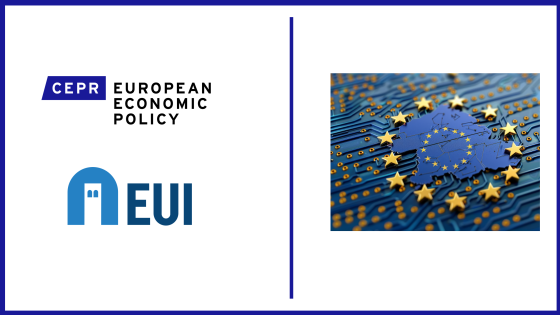

Search the site

The Centre for Economic Policy Research (CEPR) Research Policy Network (RPN) European Economic Policy, in collaboration with the European and Monetary Union (EMU) Laboratory of the European University Institute (EUI), cordially invites you to attend a webinar on
Can Deficits Finance Themselves?
to be held online on
Wednesday, 23 October 2024
05:00 - 06:00 PM (CEST)
via Zoom
Paper presenter
George-Marios Angeletos (Northwestern University)
Organisers and Moderators:
Laura Bottazzi (Bocconi University and CEPR)
Giancarlo Corsetti (EUI and CEPR)
Abstract: We ask how fiscal deficits are financed in environments with two key features: (i) nominal rigidity, and (ii) a violation of Ricardian equivalence due to finite lives or liquidity constraints. In such environments, deficits can contribute to their own financing through two channels: a boom in real economic activity, which expands the tax base; and a surge in inflation, which erodes the real value of nominal government debt. Our main theoretical result establishes that this mechanism becomes more potent as fiscal adjustment is delayed, leading to full self-financing in the limit: if the monetary authority does not lean too heavily against the fiscal stimulus, then the government can run a deficit today, refrain from tax hikes or spending cuts in the future, and still see its debt converge back to its initial level. We further demonstrate that a significant degree of self-financing is achievable when the theory is disciplined by empirical evidence on marginal propensities to consume, nominal rigidities, the monetary policy reaction, and the speed of fiscal adjustment. The mechanism is however symmetric: similar considerations may explain why austerity may fail to reduce the debt-to-GDP ratio significantly.
Paper:
Can Deficits Finance Themselves?, Econometrica, forthcoming, with Chen Lian and Christian Wolf